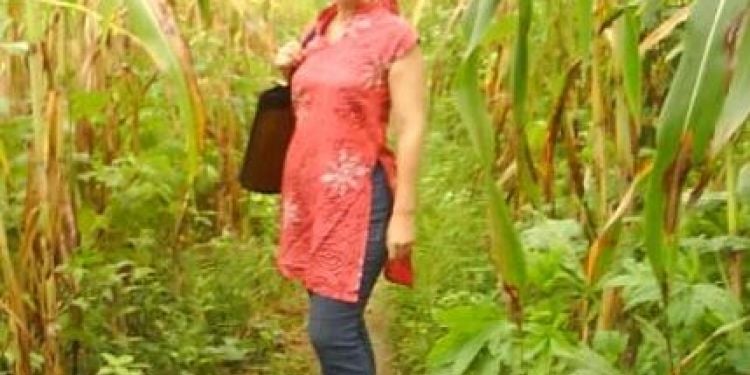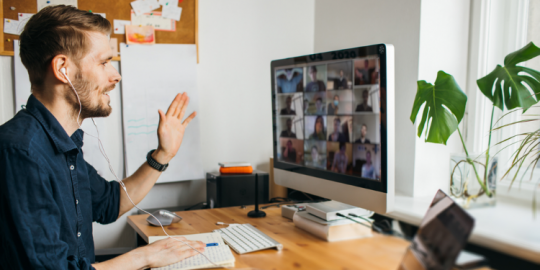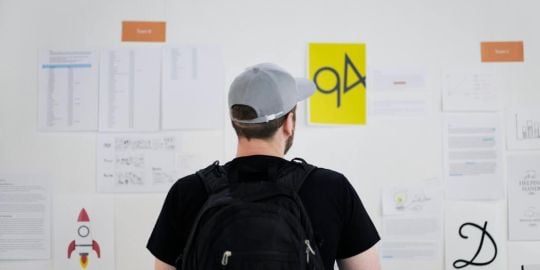I'm Gayle, which is a brilliant traveling name. It can sound like ‘frog' or ‘vomit' in Japanese or ‘girl' in Ghanaian English. I was born and grew up in Sydney, Australia.
Where are you living now? Have you been there for a while? How long do you plan to stay?
I'm living in the Upper East Region of Ghana, West Africa. I spent two years in Cape Coast/Elmina and four months in Kumasi. I've been in Bolgatanga since February. And I spent almost one year in Cambodia for work too.
Eventually, my Ghanaian partner and I would like to establish a centre up here focusing on domestic violence and communication, with some kind of income generating element. There are no social services and there is very little access to helpful skills or information. If there was less violence, perhaps people could concentrate their energy into putting more food on the table at the end of the day. I know it's a chicken and egg argument though and after discussing it in depth with various individuals around this area over the last few months, we feel that we can make the best contribution to what is really needed this way.
Have you ever lived abroad before?
I lived in Japan for a year when I was seventeen as an exchange student. I absolutely loved it. I studied Japanese throughout high school and uni, but my language is rusty these days.
How many countries have you visited?
NZ, Singapore, Cambodia, Vietnam, Philippines, Thailand, India, Japan, China, USA, United Arab Emirates, England, Italy, Netherlands, Sri Lanka, Ghana. The Philippines was like the Ghana of Asia to me—so friendly and fun. All of South East Asia was interesting, but I really want to see more of Africa and India.
When did you decide to go and live abroad? Is it your first time or are you a "serial expat"? Why did you choose to live in Ghana?
I discovered I could get a British Ancestry visa and planned to work in England. And then, late 2004, the tsunami hit and I decided to volunteer in Indonesia, which led me ultimately, and quite surprisingly, to Ghana for 6 months. Just before I left Dad said there's no shame if I don't like Africa and I want to come home. I was secretly relieved because I thought I might not cope! In my last week at work in Sydney a colleague who'd spent time in Zambia said something like, ‘the Africa bug will get to you, you will always want to return to Africa.' I remember thinking, yeah right. Famous last thoughts.
How was the cultural shock?
I'd never visited a developing country. I was overwhelmed by the poverty and a feeling of helplessness, initially. I disliked shopping and not knowing the prices of anything. Having realised it's a bit of a game, I now enjoy shopping in the market. I adapted, as you do, and everything seems normal now. I realised I had really adapted after a few months when I was haggling with a taxi driver while he was standing, peeing on the side of the road—in full view! It didn't bother me at all and I remember thinking, Gayle, you have arrived!
The place where you live: how would you describe it?
I'm now living in Bolgatanga, up near the border of Burkina Faso; it's like being in a different country. Still, people are just as friendly and welcoming as everywhere else. Bolga reminds me of an Australian country town. Massive neem and mango trees provide shade along the main streets and it's very laid back. Rolling hills spread in every direction. Motorbike and bicycles are the main mode of transport, but goats that rule the road. It's the rainy season now, so it's lush and green and the maize and millet are ten feet high. Bolga is famous for basket weaving, something you won't find elsewhere, and the craftsmanship and colour of the baskets are beautiful. I like ‘TZ', the staple of wobbly maize porridge with betel (a spinachy leaf) soup in a spicy ground nut base and guinea fowl. Yum.
What do you like the most about it?
Ghanaians themselves. I read all the stuff about Ghanaians being welcoming in the guide books and it's true. Every time I arrived somewhere, the middle of the night or the blazing heat of the day, someone always offered to take me where I needed to go, or sent a suffering small boy to show me—almost always without asking for anything. For someone with absolutely no sense of direction, it was a relief to discover that even if you're lost, you're never really lost. Ghanaians are really laid back with a great sense of humour. While people take what you say at face value, they do get a well-intentioned joke and have a good laugh about it. And while they laugh about pretty much anything, I've realised it doesn't necessarily mean they're happy, but I admire that they laugh anyway. After being here, I rode the tube in London and everyone looked so grumpy and no one would talk to me. I thought how lonely it must be for Ghanaians or anyone from a friendly society when they first arrive in a place like London.
Do you miss anything from your homeland?
I miss my family and friends and participating in the milestones (and day to day aspects) of their lives. (I'm looking forward to the day we can teleport.) I miss fresh herbs like parsley, rosemary, sage to cook with. And book shops. I've read all my books about three times, even the bad ones. And a decent doctor.
Your blog: when did you start it? For what reasons? Did its original purpose change along the way? Do you spend a lot of time on it?
I started it last October. I wanted to show an alternative side of (what seems like) ‘brand Africa'—war, conflict, famine, and disease—that the mainstream media wholeheartedly neglects. The Africa you see in the world's media is quite one-dimensional, although the BBC has a great service and Al Jazeera are doing great coverage of ‘human' stories.
I wanted to show normal people doing normal things. Even though life is tough, most people make the best of it—kids carrying buckets of water uphill on their heads in the blazing sun, joking and dancing the whole way; women who aspire to have options and they do something about it; young people for whom debating politics is a national sport—without killing each other (mostly); a nation that is rated more peaceful than the US and the UK; a place where Muslims and Christians live happily side by side. A bit of a lofty aim, I suppose, but that's what it was. Not sure if I achieved that. Judging by the emails I get, people appreciate it, including Ghanaians. However, I no longer wear rose coloured glasses and will highlight issues if I think doing so may make a positive difference.
I get all sorts of questions. I try to reply to them. I don't spend much time online since I don't have a connection at home. I copy emails like a mad woman at the café, write everything on the PC, and then copy and paste it all back in at the café.
Did you make new friends with your blog? Have you ever met somebody you spoke with on your blog?
I am quite far from where most people travel so it's not likely that I'll meet many people. I have had some really interesting conversations with people emailing me, though.
Expat-blog (of course!): when did you register? Any particular reasons?
I was looking for other Ghana blogs and came across it in the search. It looked pretty cool, so I joined! And it is.
Any 'memories of an expat' you would like to share with other bloggers?
Or maybe your worst experience?
My ‘best' worst experience was being robbed by three men on the way to work one morning in Cape Coast. When I realised I'd been robbed by the three men, the driver shouted, ‘You get out,' and I shouted back, Go to hell, I'm not getting out until you return everything.' Eventually, after me cursing like a trooper, they returned everything—money, purses, phone, lap top cord, pen drives—and I live to tell the tale. By the way, being Ghana, I gambled that they wouldn't have weapons. If they had them, they never showed them. I know I was lucky and I've been more careful about which taxis I take.
The truly worst experience was Christmas Eve two years ago. A stomach ulcer type thing burst in me a couple of days before Christmas. I was in extreme pain and couldn't eat or hardly even drink water. Dad called me on Christmas Eve morning and told me that my grandfather just died. I couldn't go home because Ghana immigration still had my passport (for 8 months). We had strict deadlines to meet and I had to go to work anyway in pain and with very red eyes. It was a shitty Christmas.
Your best souvenir?
My best souvenir is an open-eyed appreciation of my fortunes in life. I have learnt that I'm much stronger than I ever imagined. I was never materialistic, and I'm even more convinced that ‘stuff' doesn't matter now. Everyone is entitled to food, shelter, education, clean water and health care but you don't need thirty pairs of shoes as well.
I know that developed country living is the global exception. Globally, most people live in poverty. Most children worldwide don't have a childhood—they work from the time they can walk. One day in Ghana I suddenly remembered a lecture Dad gave me as an adolescent about this. We were driving along and he said to me and my sister, ‘You know you are among the luckiest one percent of children in the world? You know you have more than most people will ever have in their lives…' and on and on—we were in the car so we couldn't escape. I don't know what reminded me of it so many years later, but I remembered that lecture one day in Ghana. I thought: ‘Ooooh, I get what he was on about now…' Having the opportunity to step outside the developed world bubble and see life through this lens has changed the way I think and feel about many things.
I appreciate that I can see a doctor when I need to, that I was born in a place that has institutions you can rely on, that I don't have to carry buckets of water on my head for kilometers just to wash or drink, that I had a childhood that I could enjoy, that I can choose what I want to eat each day, that I can travel easily (the hell Ghanaians go through just to get a visa for a two week holiday almost anywhere is unbelievable—we take that we can travel for granted), and that as a woman I can do anything I want (within my capabilities, of course).
That appreciation and knowledge is the most valuable ‘souvenir' ever—end of story. I am eternally grateful to Women in Progress, where I first came to volunteer, and later worked, because I wouldn't have experienced any of this without them. And I'm grateful to Ghana for letting me stay here, too.
Oh, and I'm learning to play football. I can't wait to play in Australia and people ask me ‘Where did you learn?' and I reply offhandedly, ‘Oh, you know, with men, in Ghana, Africa,' and kick a bit of Aussie arse.












